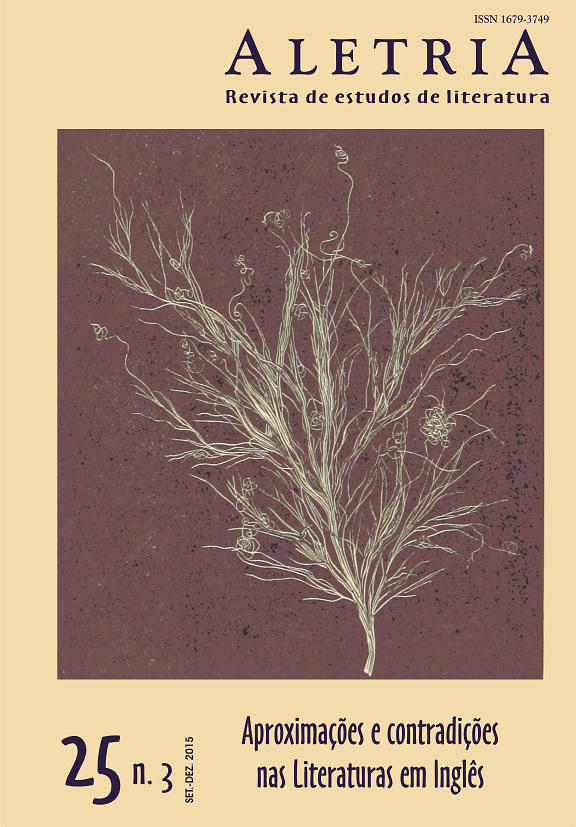Infinity and Voracity of Lists in John Milton’s Paradise Lost
DOI:
https://doi.org/10.17851/2317-2096.25.3.97-112Palabras clave:
lists, Paradise Lost, MiltonResumen
Taking a cue from Stanley Fish, the focus of this essay will be on the forms of “intangling” that read as a play of captivity and unboundedness, two apparently opposed notions that, nevertheless, underpin Milton’s poetics. What we propose to look at here is how these terms are effected in the literary lists, inventories, catalogues and accumulations Milton consistently explores in Paradise Lost. More specifically, this essay argues that the paradoxes of, and possible antidotes to, captivity that we see operating in the lists in Paradise Lost are staged in a treatment that lends them the quality of being at once infinite and voracious, thus a tentative antidote to (something that relieves, prevents, or counteracts, as an antidote to boredom) captivity.
Descargas
Citas
ECO, Umberto. The infinity of lists: from Homer to Joyce. London: MacLehose, 2009. Print.
FISH, Stanley. Surprised by sin: the reader in Paradise lost. 2nd ed. Cambridge: Harvard University Press, 1998. Print.
HELGERSON, Richard. Forms of nationhood: the Elizabethan writing of England. Chicago: University of Chicago Press, 1992. Print.
MILTON, John. Paradise lost. Ed. Barbara K. Lewalski. Oxford: Blackwell, 2007. Print.
RUMRICH, John. Milton unbound. Controversy and reinterpretation. New York: Cambridge University Press, 1996. Print.
SÁ, Luiz Fernando Ferreira. Paraíso perdido em contracena. Uma conversação pós-colonial. Belo Horizonte: Universidade Federal de Minas Gerais, 2001. Print.
SCHULMAN, Lydia. Paradise lost and the Rise of the American Republic. Boston: Northeastern University Press, 1992. Print.
Descargas
Archivos adicionales
Publicado
Cómo citar
Número
Sección
Licencia
Derechos de autor 2016 Luiz Fernando Ferreira Sá, Mayra Helena Alves Olalquiaga (Autor)

Esta obra está bajo una licencia internacional Creative Commons Atribución 4.0.
Authors who publish with this journal agree to the following terms:Authors retain copyright and grant the journal right of first publication with the work simultaneously licensed under a Creative Commons Attribution Non-Commercial No Derivatives License that allows others to share the work with an acknowledgement of the work's authorship and initial publication in this journal.Authors are able to enter into separate, additional contractual arrangements for the non-exclusive distribution of the journal's published version of the work (e.g., post it to an institutional repository or publish it in a book), with an acknowledgement of its initial publication in this journal.Authors are permitted and encouraged to post their work online (e.g., in institutional repositories or on their website) prior to and during the submission process, as it can lead to productive exchanges, as well as earlier and greater citation of published work (See The Effect of Open Access).





